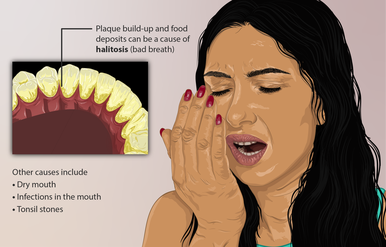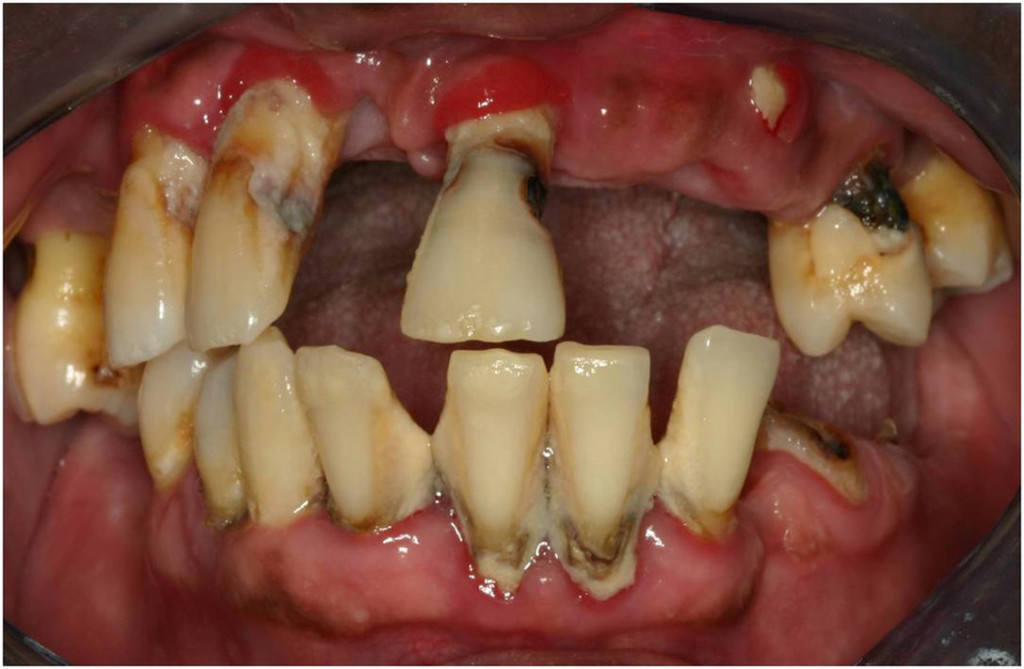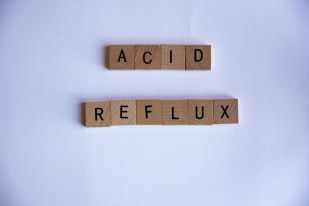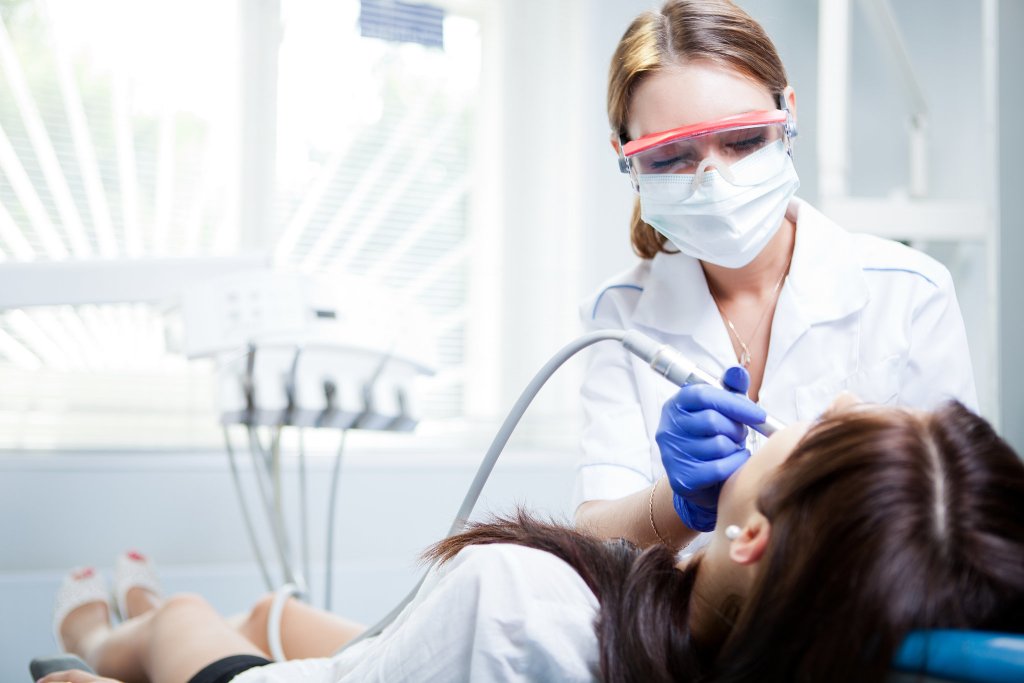
Bad breath or oral malodor is the term given to any unpleasant smell or odor emanating from the mouth. This can cause a lot of embarrassment to those who suffer from it. There are a variety of oral and systemic causes for bad breath. However, oral causes are found to be more common.

Oral/ Dental Causes:
- Poor oral hygiene: Brushing twice a day and flossing regularly reduce the build-up of ‘Plaque’, a bacterial film on the surface of the teeth. Build up of plaque eventually leads to gum disease (periodontitis). The presence of deep, food and plaque filled pockets between the teeth and gums in periodontitis can significantly compromise oral health and hygiene leading to oral malodor.

- Ill-fitting dentures or crowns can lead to the accumulation of plaque and food particles.
- Dental cavities: Cavities in the tooth surface act as a reservoir for decaying food and plaque. Sometimes, due to pain associated with a dental cavity, oral hygiene is compromised by poor brushing habits.
- Erupting wisdom tooth: Inflammation of tissues around an erupting wisdom tooth (pericoronitis) can lead to food accumulation and poor hygiene practices due to the pain.
- Coated Tongue: Failure to clean the tongue regularly leads to a build-up of food and plaque on the tongue surface, leading to bad breath.
- Oral infections: Pus in the oral cavity due to an infected tooth or periodontitis can lead to a foul smell.

- Habits: Certain habits such as mouth breathing can lead to a dry mouth due to reduced saliva. This leads to a bad mouth odor.
- Long-standing oral ulcers that interfere with oral hygiene.
- Smoking or tobacco chewing habits
- Rarely, oral cancer can lead to a bad breath
Other causes:
- Gastrointestinal problems such as reflux disorder and peptic ulcer (acidity)

- Liver and Kidney disorders
- Medications such as anti-histamines or anti-psychotics
- Enlarged, infected tonsils: tonsillitis
- Chronic sinusitis, postnasal drip
- Excessive alcohol consumption
- Dietary habits such as including a lot of onions or garlic

What to do?
- Maintain oral hygiene
- Regularly clean the tongue surface
- Change any food, lifestyle habits that might be contributing to the problem
- Use sugar-free mints after meals
- Most Importantly, visit the dentist every 6 months to one year. Any oral causes can be identified and treated promptly by your dentist. In the case of a systemic cause suspicion, your dentist will refer you to the concerned doctor.

Visit https://curie.health/ to know more and to find a dentist near you!

